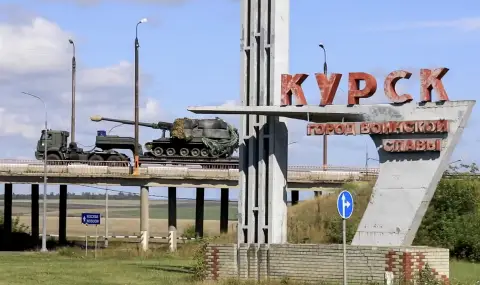A crew from German public television ARD was allowed into a POW detention center in Ukraine. The deputy head of the prison told the media: "There are many young people here – conscripts aged 18 to 21. During the first two or three days they were very frightened. But as soon as they realized that we were not going to hurt them and that they were safe, they calmed down."
Russian soldiers: adults, but still children
Since the start of the Ukrainian offensive in the Kursk region, more than 300 Russian prisoners of war have been registered in this detention center alone. Although they are already of legal age, they are not yet mature men, emphasizes ARD. Everyone with whom the reporters spoke had previously given their consent to be interviewed and recorded, the ARD specifies.
One of them is 19-year-old Anton. "We did not want to take part in hostilities. It was pure coincidence,'' he says. "We did not fight, we guarded the border. And then we were involved in this offensive. This shouldn't have happened. We just shouldn't have been there." The air in the cell is stagnant. Colorful plastic cutlery is placed on the table. The men say that food is brought to them three times a day. The movie "Garfield" is playing on a TV set in the corner of the cell. More than a dozen prisoners of war are housed in the premises.
"I hope they trade us. Ukrainians want to go home, so do we," says Dimitrii, Anton's roommate. He adds that the conscripts don't really have a job at the border, but they sent them there anyway. Only a few of the Russians captured there were wounded during the Ukrainian offensive. They very obviously surrendered without a fight.
The men who agreed to speak to German reporters say that the Ukrainians treat them well: they receive medical care, clothes, hygiene products, and have the right to a daily walk in the yard. Prison guards were also present at ARD's interviews with Russian prisoners of war. There are also Red Cross officials there - they monitor the conditions in the prison, but do not wish to talk to the media.
A means of pressure against Putin?
In front of German reporters, Anton described the moment of his capture. "We were all gathered in one room - about 28 people. It was scary. We shouted loudly: "We are conscripts, don't shoot! We all surrender!"
The young men say that they were not prepared for a real war. Some of them were abandoned by their commanders after the Ukrainian army began its offensive in the Kursk region. These young Russians could play an important role in the next prisoner exchange. Ukraine hopes their mothers will put pressure on Russian President Vladimir Putin.
"They are safe here for now, they know it. They expect to be exchanged as soon as possible, but that is not up to us," the deputy head of the prison told ARD. Prisoner exchanges are often the result of highly secretive and complex negotiations. According to Putin and the General Staff of the Russian Armed Forces, conscripts should not be sent to the war against Ukraine. However, the regime in the Kremlin clearly did not expect Ukraine to invade Russian territory. From the Kursk region, messages and many photos of Russian servicemen who have fallen into Ukrainian captivity are arriving, the ARD publication also says.
Author: Rebecca Bart (ARD)
